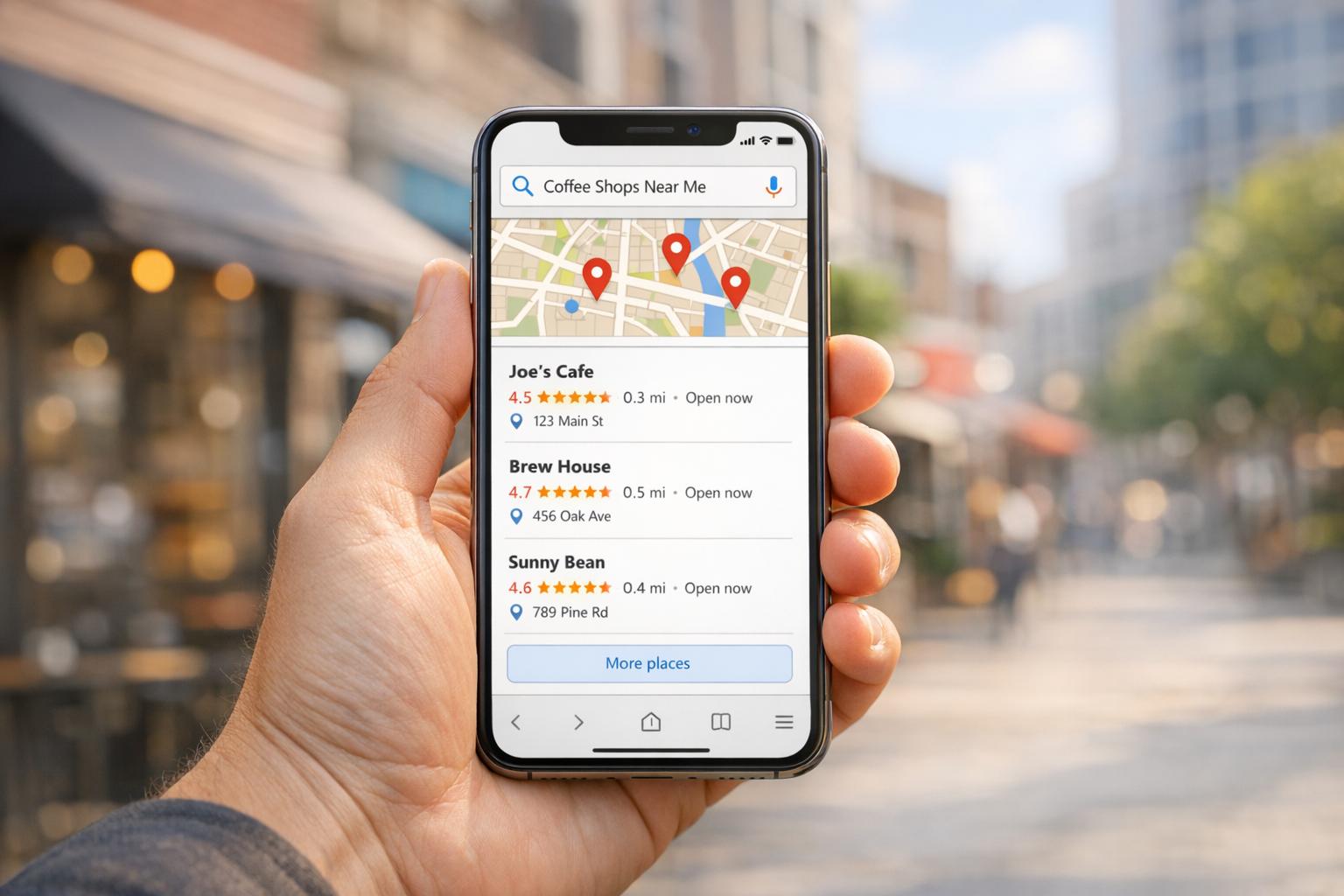Schema markup can dramatically improve how nonprofits appear in search results, driving more traffic and engagement without extra advertising costs. The National Aphasia Association used this strategy to increase organic clicks by 63% and impressions by 63% in just six months. Here's how they did it:
- What is Schema Markup? It's structured data added to your website's code to help search engines better understand and display your content.
- Why Use It? It boosts visibility, adds rich search features (like FAQs or events), and increases click-through rates by up to 30%.
- Key Types Used: Organization schema (contact info), FAQPage schema (common questions), Event schema (event details), and ItemList schema (resource pages).
- Results: Higher search rankings, more clicks, and enhanced credibility.
Nonprofits can start small with Organization schema and expand to other types. Tools like JSON-LD and Google Search Console simplify implementation and tracking. By integrating schema markup, nonprofits can reach more people and strengthen their online impact.
How Can Nonprofits Use Structured Data For Better SEO? - The Nonprofit Digest
Schema Markup Implementation: Step-by-Step Process
The National Aphasia Association followed a detailed, step-by-step approach to implement schema markup, creating a process that other nonprofits can easily replicate. Their method began with identifying the most relevant schema types for their website, followed by careful implementation and testing. This strategy aligned with their mission to boost credibility and improve user engagement.
Selecting the Right Schema Types
The first step was a thorough site audit to identify which schema types would best align with their content and user goals. They matched specific schema types to different page categories based on the purpose of the content and the needs of their audience.
- Organization schema: Added to the homepage and about page, this schema displayed essential details like contact information, mission statement, and leadership structure. This helped search engines present verified organizational details directly in search results, building trust with users.
- FAQPage schema: Applied to pages with frequently asked questions, this schema enabled those pages to appear in Google Search as expandable question-and-answer sections, enhancing visibility and user experience.
- Event schema: Used for pages promoting workshops, support groups, and fundraising events, this schema showcased event details such as dates, locations, and registration links directly in search results.
- ItemList schema: Implemented on resource pages covering topics like types of aphasia, treatment options, and educational materials. This schema helped these pages appear as featured snippets, giving the content more prominence.
- NGO Schema variant: Highlighted key nonprofit details, including donation and volunteer opportunities, as well as the organization’s mission.
Once the appropriate schema types were chosen, the team focused on technical setup to ensure smooth integration and optimal performance.
Technical Setup and Testing
The team opted for the JSON-LD format for all schema markup, following Google’s preferred method for structured data. These scripts were added to the <head> section of their pages to maintain efficient crawling and page performance.
Using their existing content management system (CMS), they integrated the JSON-LD scripts without needing complex custom development. To ensure accuracy, they validated the markup using Google’s Rich Results Test, which helped them quickly identify and fix issues like missing properties or formatting errors.
They also used Google Search Console to monitor structured data performance over time, confirming when the new schema markup was recognized by Google. This allowed them to address any technical issues as they arose.
To keep things organized, the team documented which schema types were applied to each page. This practice ensured consistency and helped prevent future updates from accidentally disrupting the schema markup.
Despite their thorough approach, the team encountered a few challenges that required creative solutions.
Solving Implementation Problems
The nonprofit faced several obstacles during implementation, including limited technical expertise within their small team. Initially, the JSON-LD setup seemed daunting. To overcome this, they turned to trusted resources from the Top SEO Marketing Directory, which helped them find reliable schema tools and expert agencies at a reasonable cost. This approach minimized errors and simplified the process.
Another hurdle was the restriction within their CMS, which prevented direct HTML editing on certain pages. They resolved this by using CMS plugins that could inject JSON-LD automatically, eliminating the need for manual coding.
One recurring issue was ensuring that schema properties stayed consistent with the actual page content. For example, outdated event details were accidentally included in the Event schema because the structured data wasn’t updated when the visible content changed. To fix this, they integrated schema updates into their regular content editing workflows, ensuring alignment between what users saw and the structured data.
They also discovered that focusing on a single, relevant schema type per page delivered the best results for rich snippets and search engine performance.
Through trial, error, and refinement, the National Aphasia Association created a sustainable schema markup process. Their approach is one that other nonprofits with limited resources can adopt to achieve similar results.
Results and Impact of Schema Markup
The National Aphasia Association's adoption of schema markup brought noticeable improvements across all major performance indicators within just six months. This case study highlights how structured data can elevate a nonprofit's online visibility and user engagement, providing clear evidence of the effectiveness of this SEO strategy. Let’s break down the key metrics that illustrate these achievements.
Performance Metrics Comparison
To measure the impact of schema markup, the organization used Google Search Console to track four critical metrics. The results were striking, showing substantial increases in organic clicks, impressions, and overall search visibility.
| Metric | Before Schema (6 months) | After Schema (6 months) | Change |
|---|---|---|---|
| Organic Clicks | 2,200 | 3,600 | +63% |
| Impressions | 79,000 | 129,000 | +63% |
| Average CTR | 2.8% | 4.8% | +2 percentage points |
| Rich Result Appearances | 0 | 15+ pages | New feature |
The 63% jump in organic clicks meant that more people were finding and using the organization’s resources - without any changes to its content strategy or additional advertising spend. The increase in average CTR from 2.8% to 4.8% reflects that the search results became more appealing and relevant to users. Additionally, the introduction of rich results, which spanned over 15 pages, gave users a more dynamic and engaging search experience.
Enhanced Search Results Display
Schema markup completely transformed how the organization appeared in Google search results, introducing rich snippets that provided immediate value to users.
- FAQPage schema added expandable Q&A sections directly in search results, addressing common queries about aphasia symptoms, treatments, and support resources.
- Organization schema improved brand visibility by displaying the organization’s logo, contact details, and social media links alongside search results, fostering credibility and trust.
- Event schema created detailed event listings, showcasing essential details such as dates, times, locations, and registration links - making it easier for users to find and act on event information.
Additionally, the use of ItemList schema on resource pages helped several pages earn featured snippet positions for searches like "types of aphasia" and "speech therapy exercises." These rich results made key information instantly accessible, encouraging users to click through for more comprehensive details.
This enhanced search presence, which included rich snippets, knowledge panels, and related searches, opened up multiple ways for users to discover the organization’s services and resources. The result? Improved engagement, better user experiences, and a stronger online presence overall.
sbb-itb-5be333f
Key Takeaways and Best Practices
The success of the National Aphasia Association shows how schema markup can elevate nonprofit SEO. It’s not just a technical tactic - it’s a strategic way to strengthen connections with your audience. By building on proven strategies, nonprofits can maintain and refine their schema markup efforts to achieve long-term results.
Practical Tips for Nonprofits
Start with Organization schema. This is where every nonprofit should begin. It establishes your credibility by ensuring that key details like your logo, contact information, and social media links appear prominently in search results. Think of it as the foundation for your online presence.
Choose schema types that align with your goals. For example:
- FAQPage schema helps answer common questions about your mission and services directly in search results.
- Event schema is perfect for promoting fundraising or community events.
- ItemList schema organizes and highlights your programs, services, or impact areas in a structured way.
Conduct regular audits. Accuracy is key, especially for large-scale implementations. Schedule quarterly reviews to catch errors and ensure new content is properly marked up. Tools like Google’s Rich Results Test, Schema Markup Validator, and Google Search Console’s Enhancement Reports can help you spot and fix issues.
Use JSON-LD for seamless integration. Google recommends JSON-LD because it’s easier to implement and less prone to errors. It integrates well with existing website code, making it an ideal choice for nonprofits with limited technical resources.
Track meaningful metrics. Keep an eye on performance indicators like click-through rates, organic impressions, and search rankings. For example, Water.org combined schema markup with broader SEO strategies and saw a 156% jump in organic traffic, along with an 89% increase in volunteer sign-ups. These numbers show the real-world impact of structured data.
Automate where possible. For larger websites, automation can save time and ensure consistency. Baptist Health, for instance, achieved a 67% year-over-year growth in search impressions by automating schema markup across thousands of pages.
Using Expert Resources
Beyond in-house tactics, tapping into external expertise can take your schema implementation to the next level.
Find trusted partners through curated directories. Resources like the Top SEO Marketing Directory connect nonprofits with schema tools, agencies, and software providers specializing in technical SEO. This minimizes the guesswork and speeds up the adoption process.
Partner with experts for complex projects. If you’re managing multiple schema types or large amounts of content, expert guidance can be invaluable. Specialists can help address challenges like distinguishing your organization from others with similar names and scaling your markup efforts effectively.
Use specialized tools for precision. Schema generators and validation tools recommended by experts can help reduce errors and maintain consistency across your site.
Integrate schema into your broader SEO strategy. Leading nonprofits, such as Water.org, combine schema markup with keyword optimization, internal linking, and image optimization. By aligning schema with your overall digital marketing goals, you can maximize its impact and drive measurable results.
Conclusion: Schema Markup Success for Nonprofits
Schema markup can drive real, measurable results for nonprofits, such as boosting click-through rates by up to 30% - a game-changer for engaging supporters, volunteers, and donors. This increase in visibility and interaction helps your nonprofit connect with people who are already searching for causes like yours.
As search engines grow more reliant on structured data to provide enhanced search results, implementing schema markup is a forward-thinking move. It’s a way to ensure your nonprofit stands out in the crowded digital space, leading to better visibility, stronger engagement, and deeper connections with your community.
For nonprofits looking to get started, the Top SEO Marketing Directory is a valuable resource. It offers access to trusted tools, agencies, and expert services that can help navigate the technical aspects of SEO. Whether you need automated schema solutions like Schema App or WordLift, AI-driven content optimization platforms, or specialized SEO agencies, there’s a solution to fit your organization’s goals and budget.
Begin with basic Organization schema, then expand to more specific types like FAQPage or Event schema. Lean on expert resources to ensure your structured data is accurate and effective. By making schema markup a key part of your SEO strategy, your nonprofit can achieve the visibility and engagement it needs to advance its mission and make a lasting impact.
FAQs
How can nonprofits with limited technical expertise add schema markup to their websites?
Nonprofits with limited technical expertise can still take advantage of schema markup by using tools and platforms that simplify the process. Schema markup generators are a great starting point. These tools provide an easy-to-use interface where you can enter key details about your organization, events, or content. Once you've filled in the information, the tool creates the required markup for you to simply copy and paste onto your website - no coding skills needed.
If your nonprofit uses website builders like WordPress, plugins can make things even easier. Many plugins come with pre-set schema types, allowing you to add structured data to your pages without diving into the technical details. Incorporating schema markup can help nonprofits boost search engine visibility, attract more clicks, and ensure their content reaches the right audience, including potential donors and supporters.
How can nonprofits benefit from using schema markup to enhance their SEO strategy?
Schema markup is a powerful tool for nonprofits looking to stand out online. By adding structured data to your website, you make it easier for search engines to interpret your content. This can result in rich snippets appearing in search results - think event details, donation links, or contact information - giving users quick access to key information.
Unlike standard SEO techniques, schema markup has the potential to drive higher click-through rates and attract more relevant traffic. For nonprofits, this translates to greater visibility for their cause and stronger connections with supporters.
How can schema markup help nonprofit organizations improve their search rankings and online visibility?
Schema markup is a handy way to help search engines grasp the content on your website, giving your nonprofit a better shot at showing up in the right search results. By incorporating structured data, you can improve how your organization appears online - for example, displaying rich snippets that highlight important details like upcoming events, contact info, or donation options.
For nonprofits, this can translate into higher click-through rates, greater visibility for specific programs or campaigns, and stronger connections with users actively looking to support causes like yours. Adding schema markup is a smart move to make your nonprofit stand out in search results and engage your audience more effectively.


